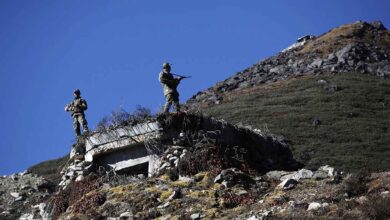Women key to Myanmar’s pro-democracy movement

Dr. Miemie Winn Byrd
The military coup in Myanmar has given rise to a widespread pro-democracy movement, with women accounting for an estimated 60% of participants These women not only have assumed combat roles but also are vital to nonlethal resistance efforts.
The Karenni Nationalities Defense Force Battalion 5 was the first ethnic armed organization (EAO) to form a female combat unit after the February 1, 2021, coup. Other EAOs and People’s Defense Force (PDF) resisters have also had female combatants.
Women also are heavily involved in nonlethal resistance, focusing on mobilizing local support to sustain the pro-democracy movement. They seek to flip the allegiance of the junta’s spies and informants or feed them misinformation. (Pictured: A woman holds a portrait of deposed Myanmar leader Aung San Suu Kyi during an anti-coup demonstration in Mandalay in March 2021.)
Women have also been the primary fundraisers domestically and abroad, using social media and local networks, and have been most effective in delivering humanitarian aid to displaced people. They play a prominent role on social media, too. The eight-member Burma (Myanmar) Affairs and Conflict Study group, led by a female engineer who has been on strike since the coup, monitors and tracks the junta’s online activities.
The group collaborates with military defectors to understand the junta’s tactics and shares information with the National Unity Government (NUG) and resistance coalition forces.
Although women comprise the majority of participants in the pro-democracy movement, they lack proportionate representation in leadership positions within the NUG, the National Unity Culture and Community (NUCC) and the PDF. As a result, nonlethal efforts receive few resources and provisions from those organizations. Moreover, many women fighting on the front line face discrimination and sexual assault, according to the Oxford Thanakha International Gender Network and the Women’s League of Burma.
Women are playing a vital role in Myanmar’s pro-democracy movement, both in combat and nonlethal resistance, such as fundraising and organizing residents. It is crucial for the NUG and resistance coalition forces to harness the power of these influencers and leaders by using a coherent strategic command strategy and by providing the necessary resources and support.
Furthermore, the NUG, NUCC and PDF must address discrimination and sexual assault against female combatants, and ensure women are equally represented in leadership positions. Women in the pro-democracy movement can greatly contribute to the resilience of Myanmar’s people and the sustained rejection of the military junta.
Dr. Miemie Winn Byrd is a retired U.S. Army lieutenant colonel and a professor at the Daniel K. Inouye Asia-Pacific Center for Security Studies in Hawaii.
IMAGE CREDIT: THE ASSOCIATED PRESS




